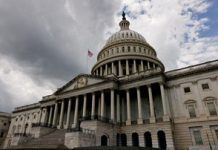With each passing day, the effects of the partial shutdown of the U.S. government, which is now officially the longest in the nation’s history, become more widespread. Beyond the closure of National Parks and federal offices, the shutdown is also having a detrimental impact on security workers as well as contractors, such as security systems integrators and guard service providers.
“The security industry is starting to feel real effects from the government shutdown, particularly for companies doing business with the federal government, or on federally-funded projects,” explains Jake Parker, Director of Government Relations for the Security Industry Association (SIA). “In some cases, companies are not able to maintain contact with government procurement, security and IT personnel needed to initiate or continue work on security projects. Many websites that provide critical information are not being updated.”
That is disconcerting news for security companies who depend on cash flow from their government contracts to keep them and their employees afloat. “What started off as the potential for an extended holiday break for some has turned into a grave scenario for large and small federal contractors,” says Derek Radoski, President of The Integration Company (TIC).
Even more concerning, according to Radoski, is that TIC has not been able to bill the government for the labor provided by two-thirds of his team on various contracts. “At the end of the day, we want to take care of our team members so they can take care of their families,” Radoski adds. Moving forward, Radoski says that TIC would be paying much more attention to and negotiate Federal Acquisition Regulation clauses related to “availability of funds,” which essentially provides legal immunity to the government in cases where funds are not available or allocated for a project.
Due to its past success, TIC is well-funded enough to make it through a shutdown of this length; however, Radoski says that other small businesses are “crumbling” and that even large, publicly-traded firms will likely post woeful financial quarters due to the hit their revenues will take as a result of the shutdown. “Worse yet, payments from December of 2018 are outstanding or have slowed because those who are needed to sign off on them have been sent home,” Radoski says. “So, TIC’s focus is on immediate delivery of commercial projects and maximizing the existing federal funded projects.” Unfortunately, an end to the shutdown doesn’t appear to be coming anytime soon, as President Donald Trump and Congressional Democrats remain at odds over the allocation of funding for a wall along the U.S.-Mexico border.








